It's been a while since I've returned to travel stories or visiting religious sites. I am quite busy with a new job when I just moved to Da Lat to live. These days, I don't travel too much, on my free days I often go for a walk near where I am, because this city is crowded with tourists in the late afternoon, especially in the city center. The city has many beautiful tourist attractions. Previously, I only came to this city when traveling for a short time, so the feeling and perspective will be much different when living there for a long time. I have a lot of time and most importantly a choice between countless other options that almost anyone is aware of. Yesterday I was looking while walking near my house, I discovered a rather interesting temple tucked away quite discreetly on a small slope leading up the hillside. It's nice that it's only about 300m from my house.
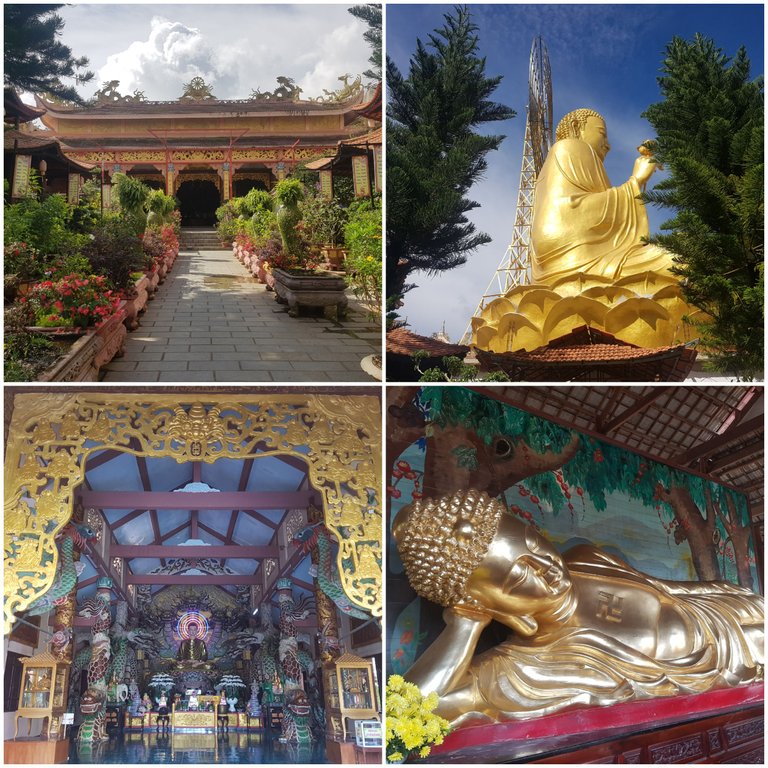
I still do not understand clearly between the temple and the monastery, is it different in the way of practice (meditation). It is called Van Hanh Zen Monastery located at 39 Phu Dong Thien Vuong Street, Ward 8, Da Lat City. The name Van Hanh is quite familiar to us when we study History at school. He was a famous monk and had a great influence on Buddhism in the 11th century. Having worked as an advisor and contributed to the establishment of a new dynasty of the Ly Dynasty, a feudal king with a powerful dynasty that had won many victories over China's foreign invasion plots. In addition to the famous name, I also want to learn about the architecture there and what makes up this sacred temple.
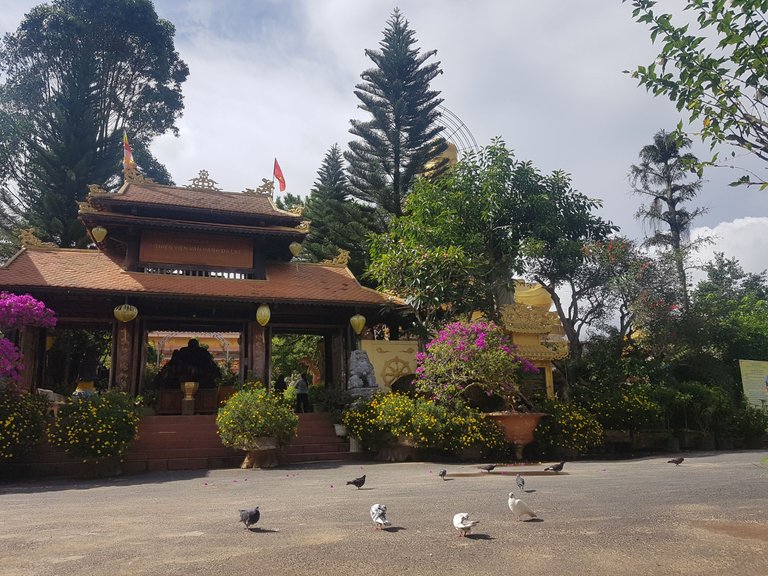
I had to go up a small and high slope, only a three-way gate stood quietly signaling me and visitors that above the slope was a temple. But it also caught my eye with the pillars built of small stone blocks, the roof curved by the skillful handwork of the workers, the typical symbols of Buddhism.
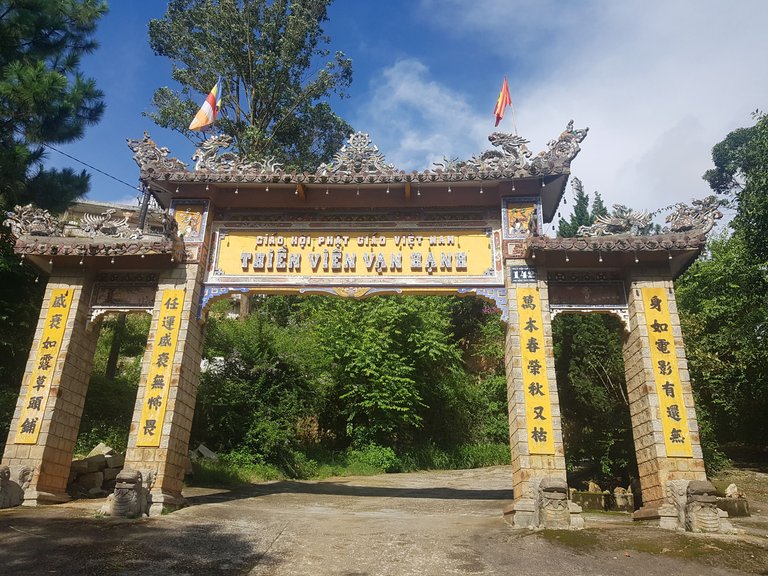
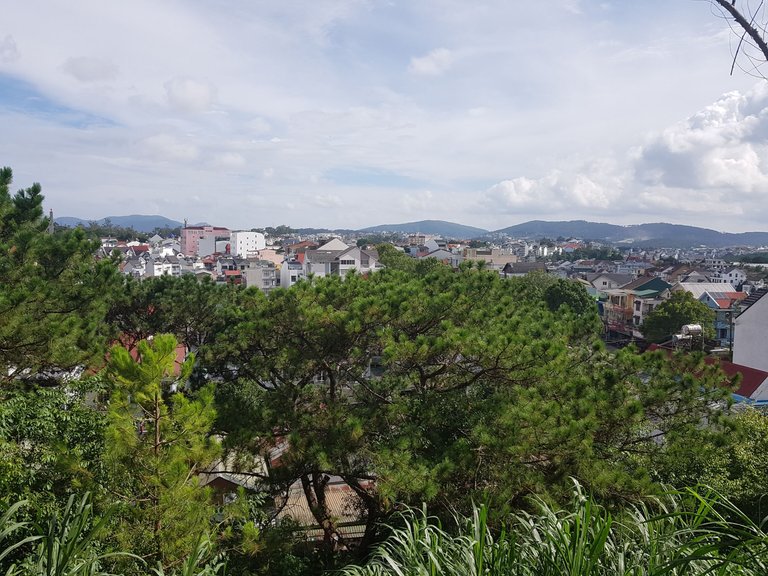
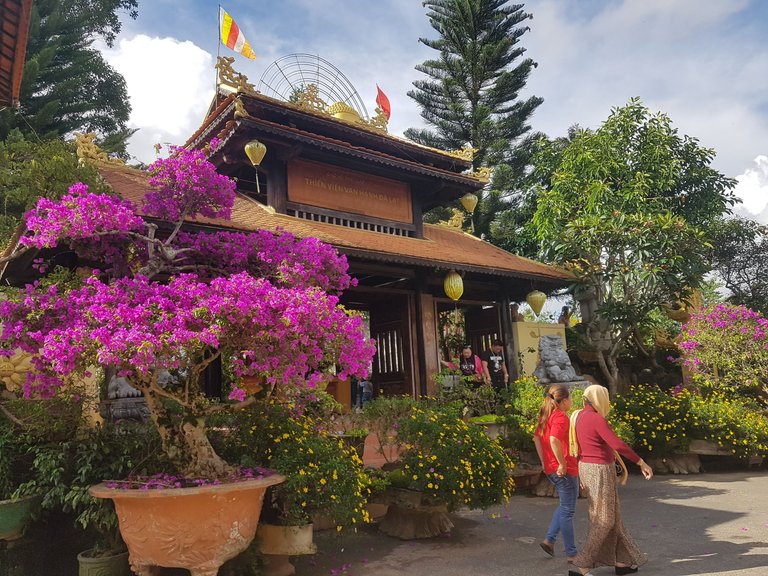
Before entering the gate to step inside, I was more attracted by the statue of Shakyamuni Buddha sitting on a lotus platform. An all-too-familiar and also quite large icon with golden paint that stands out in the sunlight. I think it's hollow inside and reinforced concrete because at the base of the pedestal they're still working on. Perhaps it replaced the old statue and expressed the sacredness of the temple through the size of the monuments. As a Vietnamese, I find that the bigger the statue, the more proportional it is to the sacredness and belief of each Buddhist.
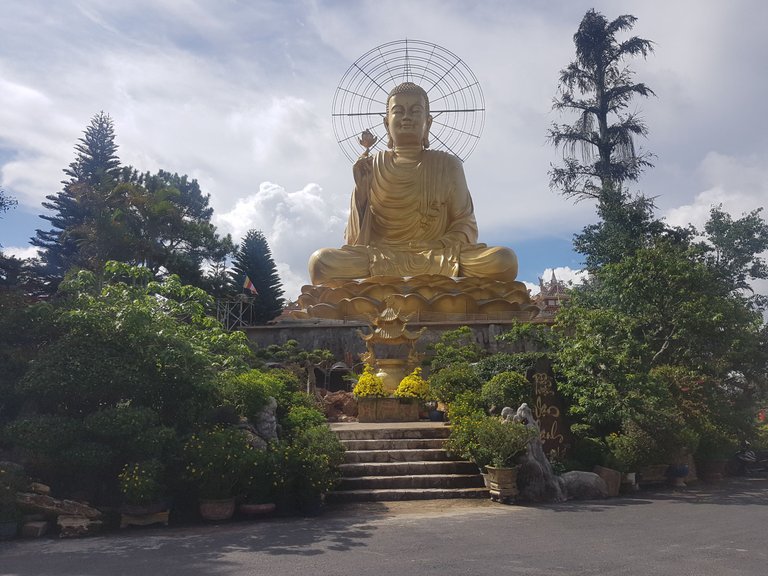
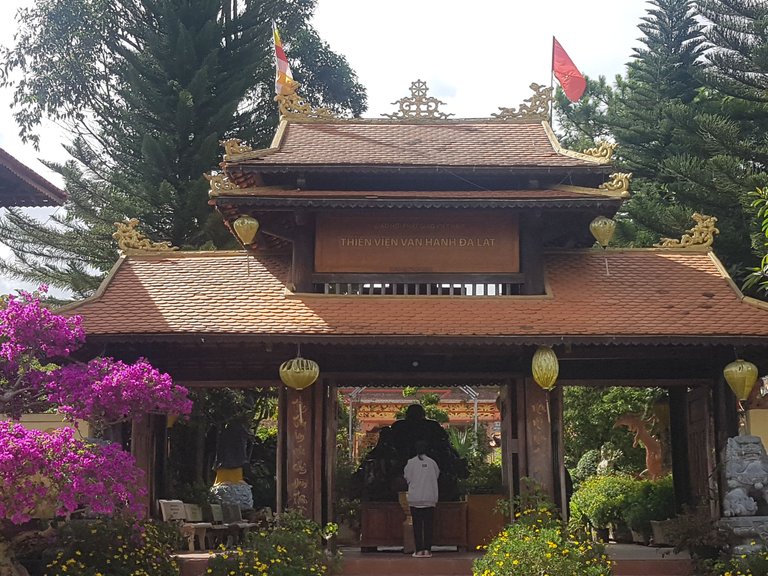
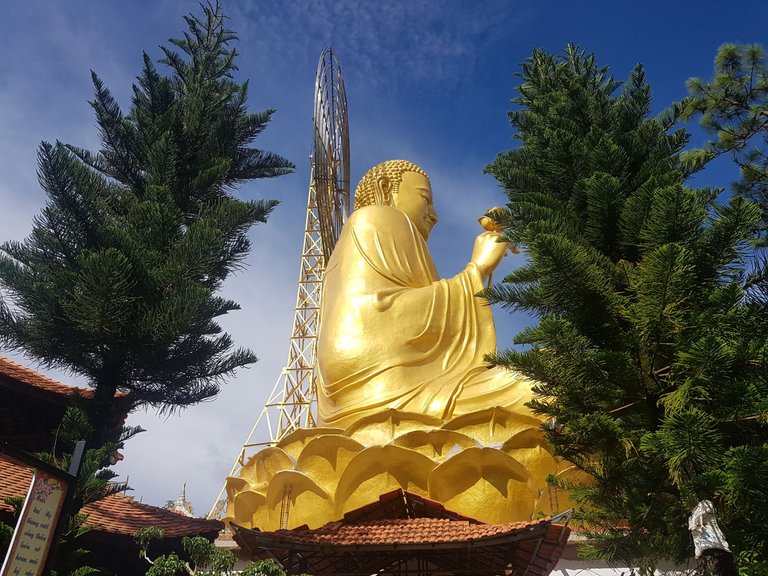
The temple is located deep inside with many wooden and stone items. Scattered around are several statues of Amitabha Buddha and bodhisattvas. Although it is smaller and cannot be located in certain areas of worship, where there is a statue, there is a worship due to the devotion of the devotees.
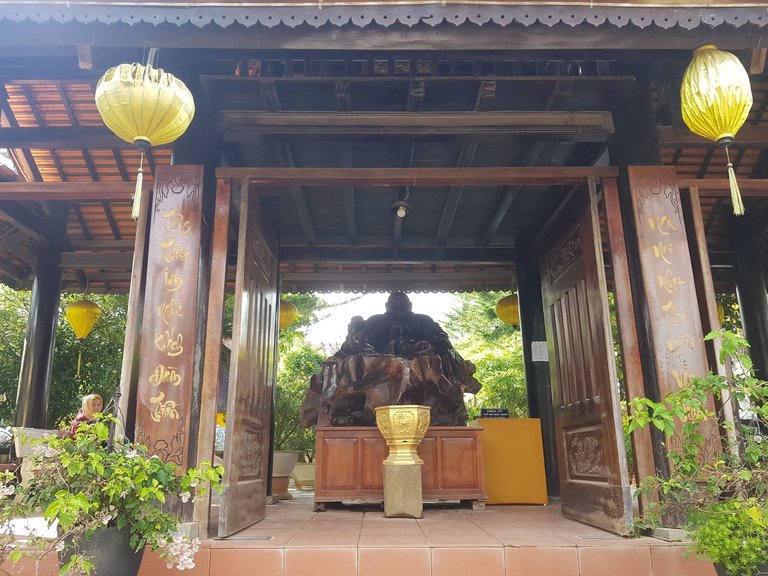
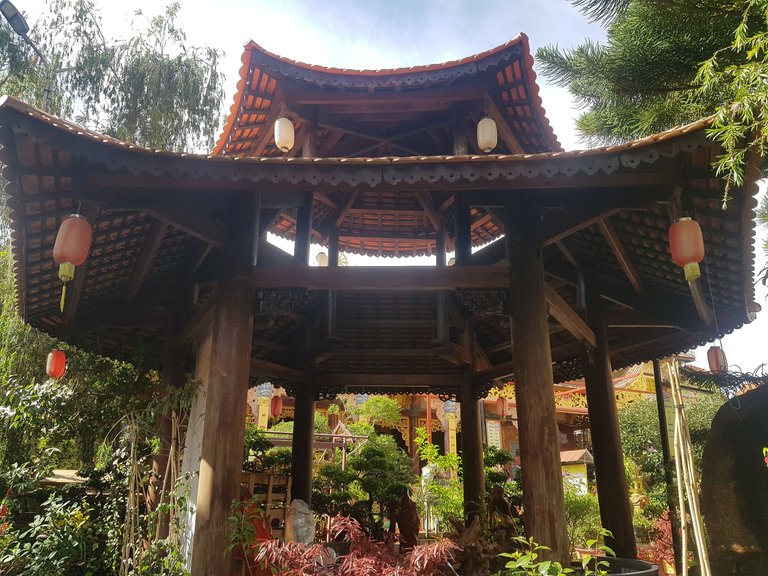
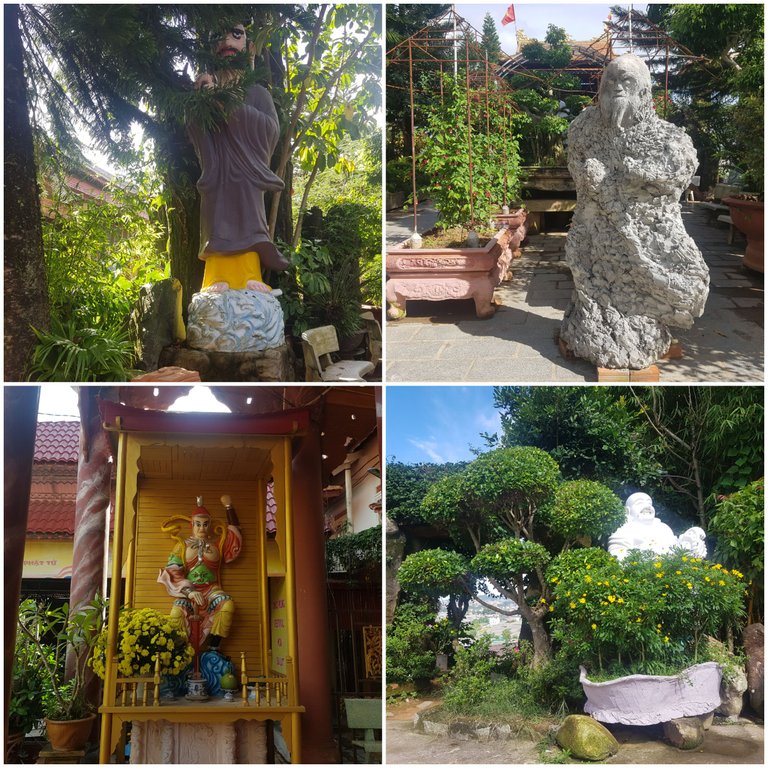
I am still impressed and interested in each religious site that it has a large campus and is extremely green. The difference between the temples and the Catholic churches here is that they prefer to use small ornamental plants and flowers more than the old trees with lots of shade.
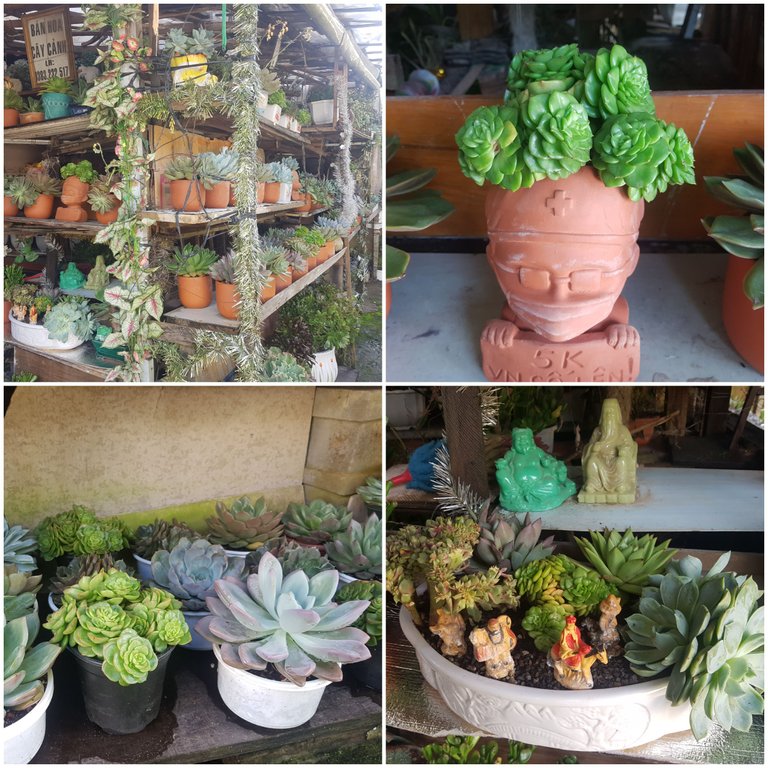
The campus is densely packed with trees that are beautifully trimmed and bent, forming a corridor that encloses believers and tourists from all over the world. Take a look at some of the close-up shots I take of some of these species.
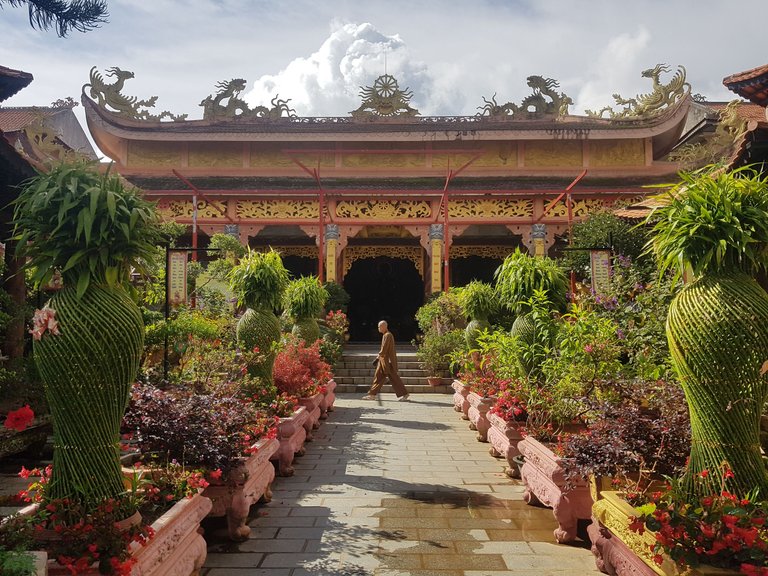
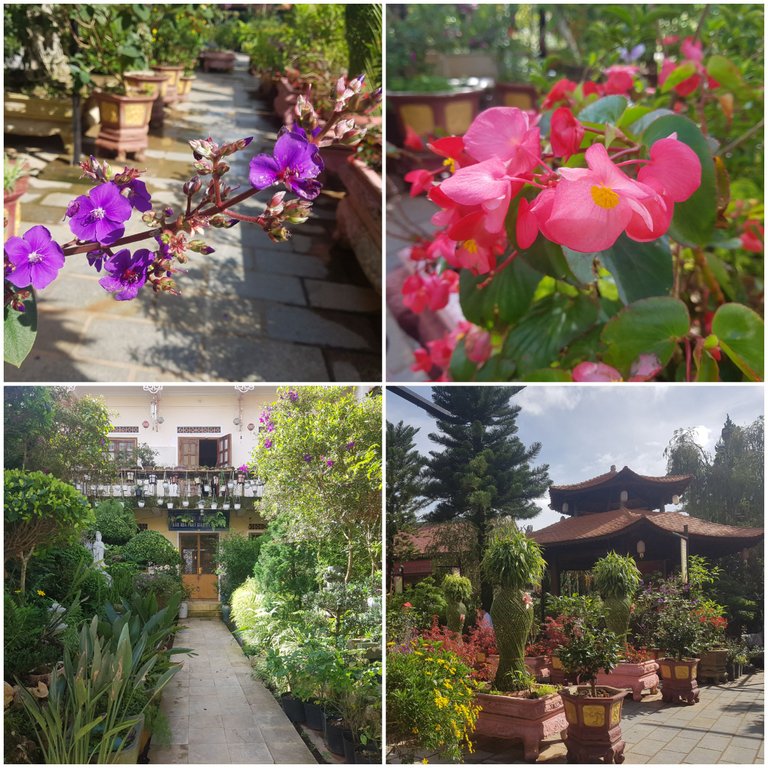
I call it the main hall of the temple. For a Christian like me, mispronouncing their name would be a concern. Each temple will have a main hall, not all are located in the center of the land depending on the terrain and design intentions, large temples may have many auxiliary halls. It is often the most splendid, the most elaborate, the most pictures, the most statues. It is a place where devotees leave their sandals outside, step inside, kneel in prayer, and also stand with folded hands in front of their most noble Buddha. They can pray for peace, good luck to their families, fortune for themselves, or the invisible fear they encounter,... Surrounded by symbols, Dharma sutras are witnessing them. Plus the incense incense burned by the monks there brings a sense of majesty, making the people inside humble.
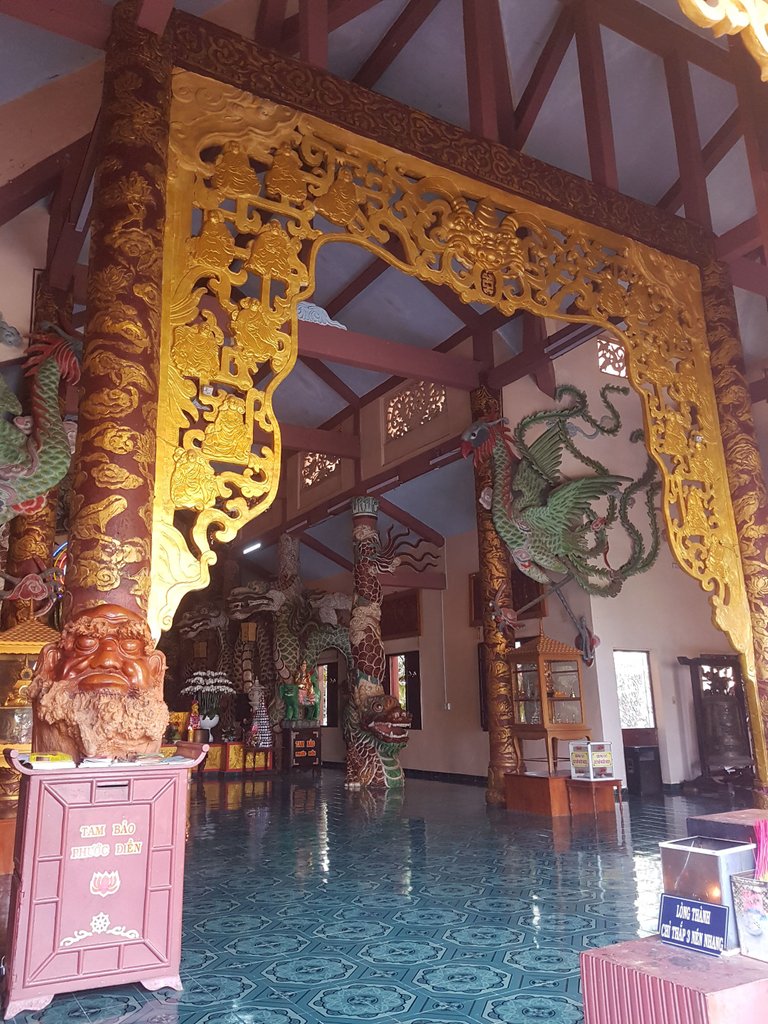
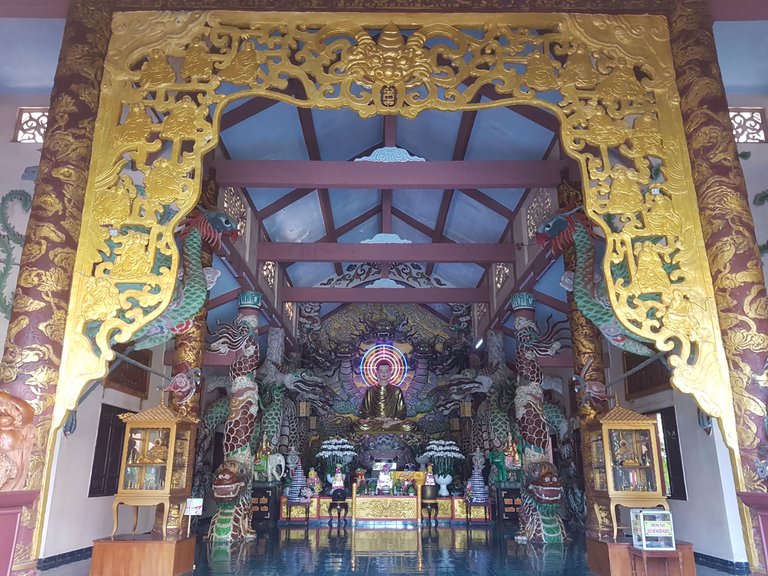
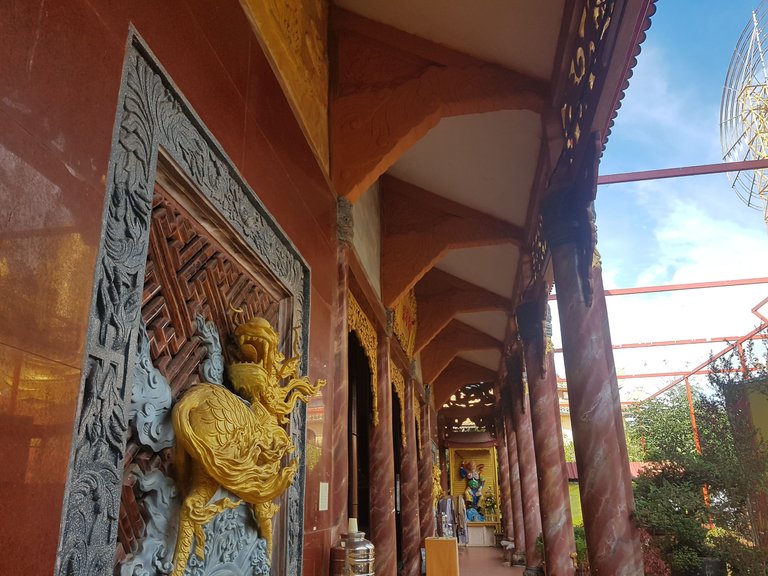
The gazes of the statues, the graceful reliefs wrapped around the rows of pillars, crossbars, dragons and phoenixes are adoring some greater power. For an outsider like me, who doesn't understand much about a different religion or architecture is also a pretty good thing. I can't judge anything, analyze whether this is right or wrong, or what it represents. I am pure and innocent plus an open heart, I just FEEL the beauty it exudes. The meticulous lines of Asian craftsmen cannot help but admire them, the small details and feats, meticulous through each bend can also understand the art when they use their labor and love. love. I didn't go inside and only visited from the outside, because outside there was no need for prayer, taking pictures while standing inside would be a bit odd and uncomfortable for some people who were praying.
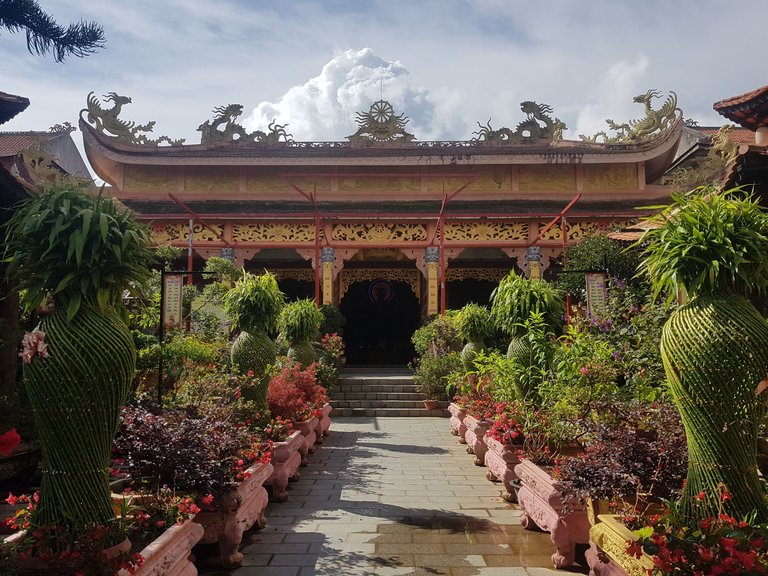
I wandered around an additional hall next door through beautiful corridors, a smaller side hall containing a sleeping or reclining Buddha statue. Devotees also pray here, but they can be touched to feel the power. As for me, the only thing I can feel is that it's not metal, probably well-ground cement concrete. I think it is the old statue that has been replaced by the sitting Buddha, because in the room there are quite a lot of neat boss reliefs.
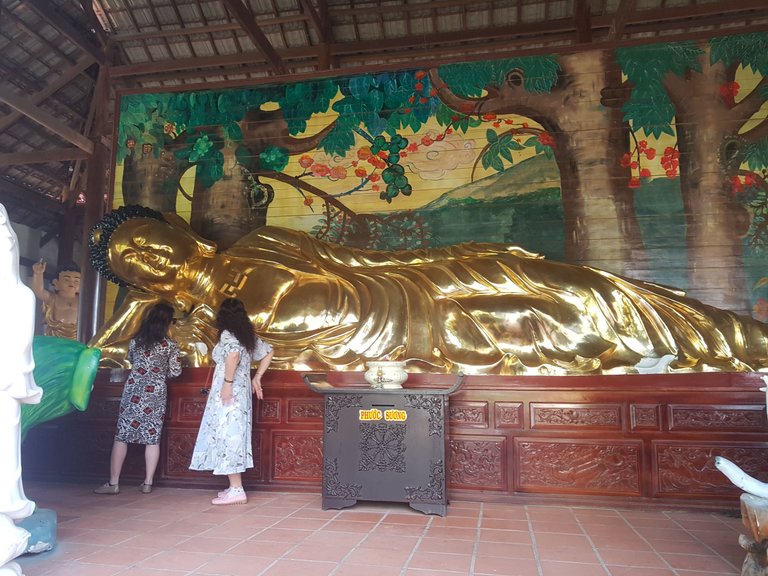
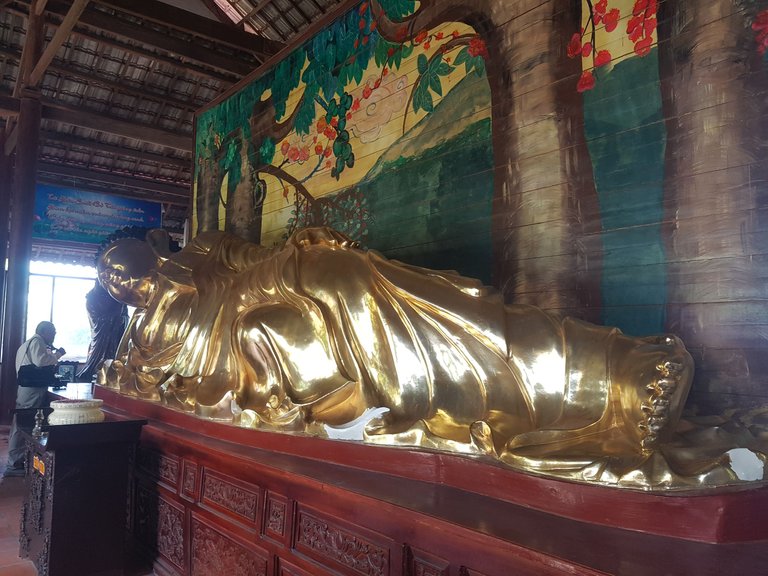
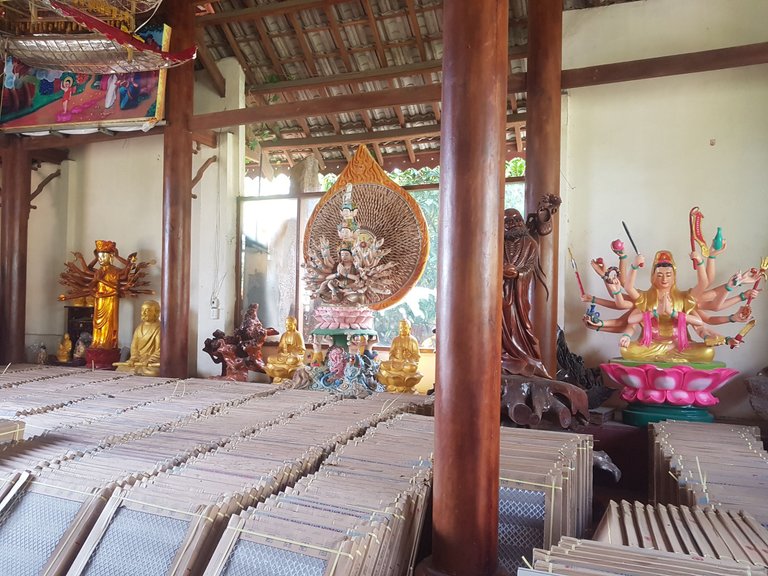
I also did not stay inside for too long and quickly walked around the outside or the back yard of the monks' residence, to get closer to the trees. Here quite a lot of tourists from all over the world visit with many large cars, there are restaurants serving food and drinks outside the temple.
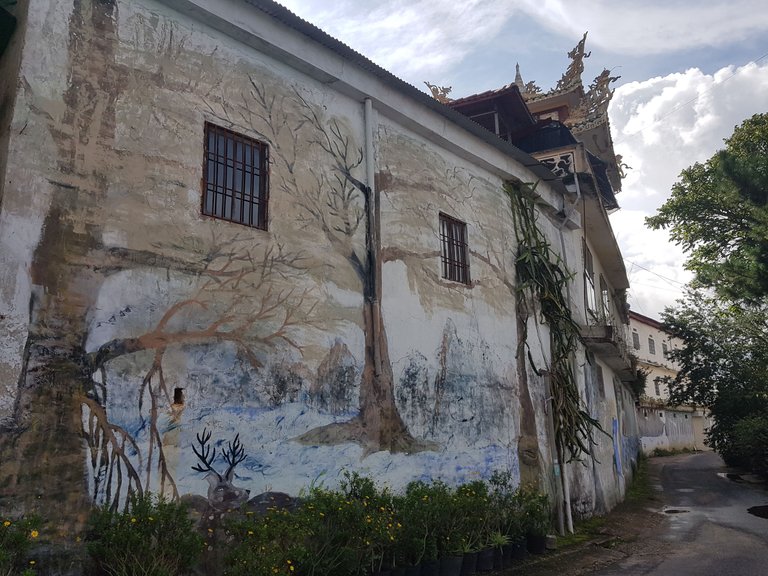
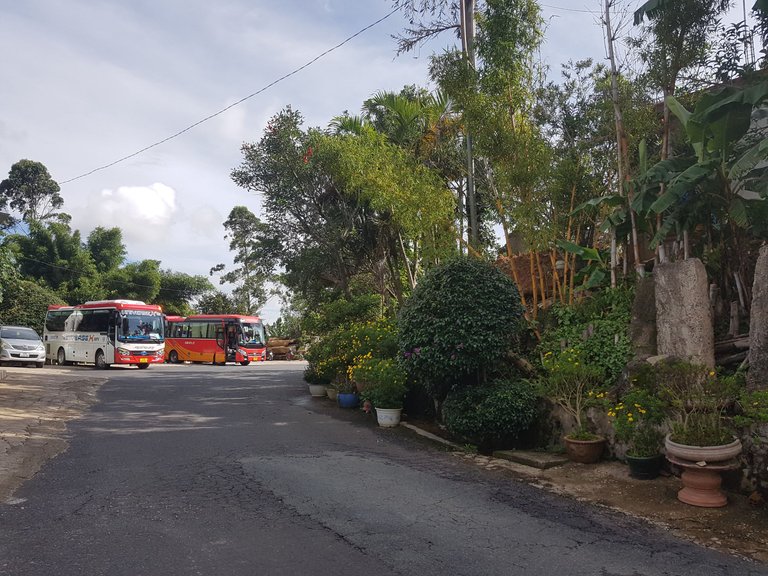
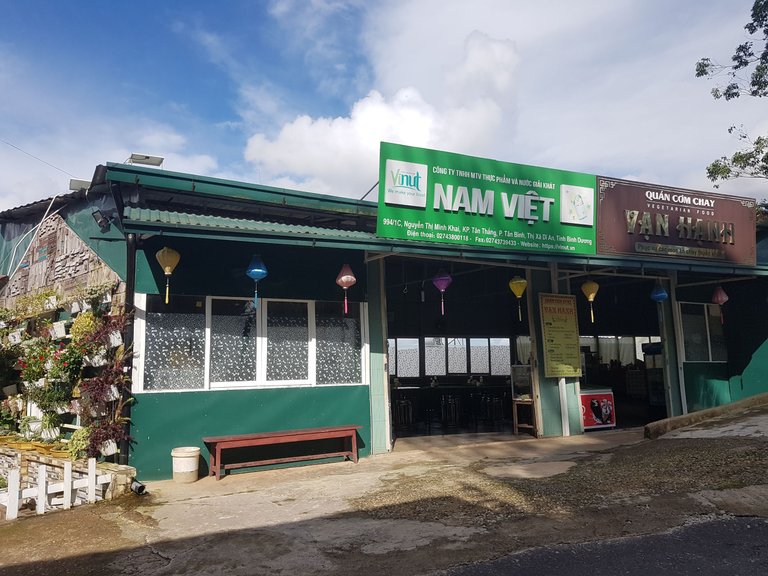
Perhaps end the post here, and come back to my local travel experiences to come. Thank you.
